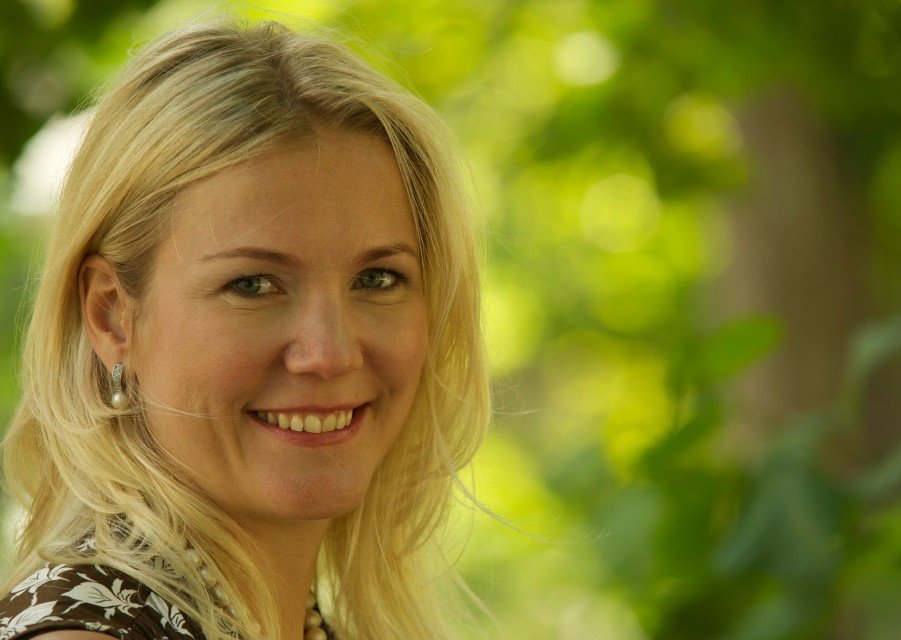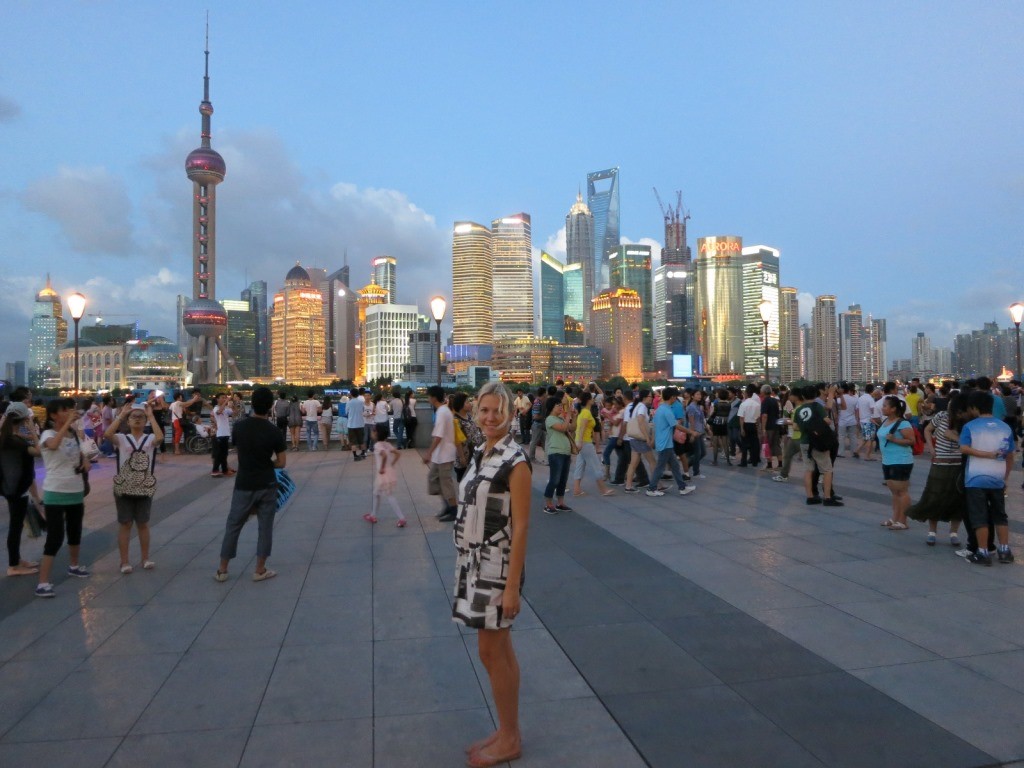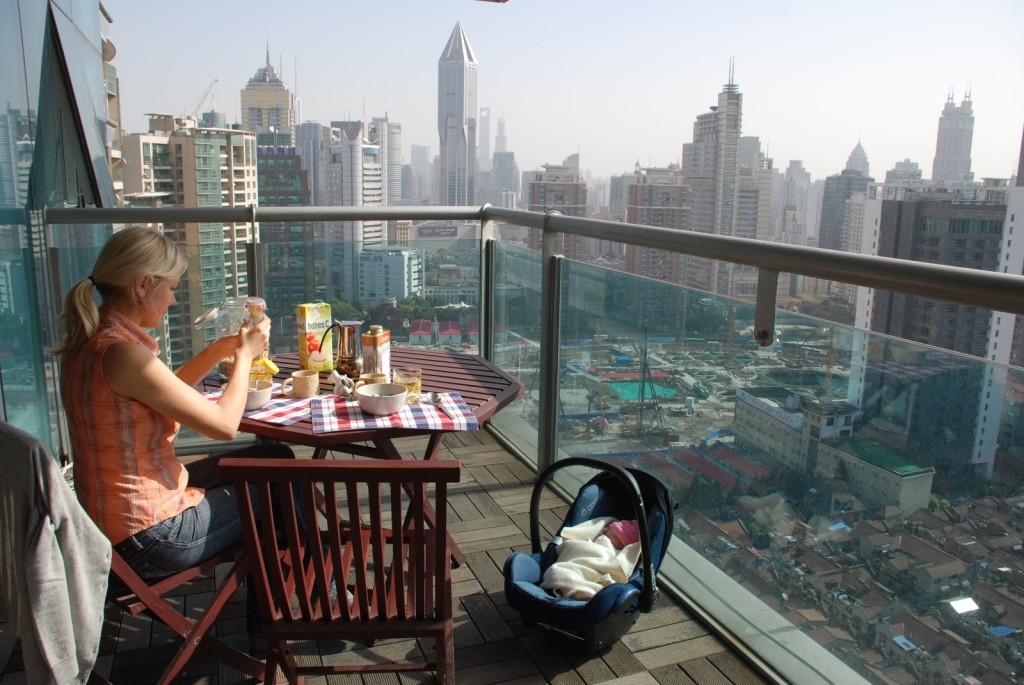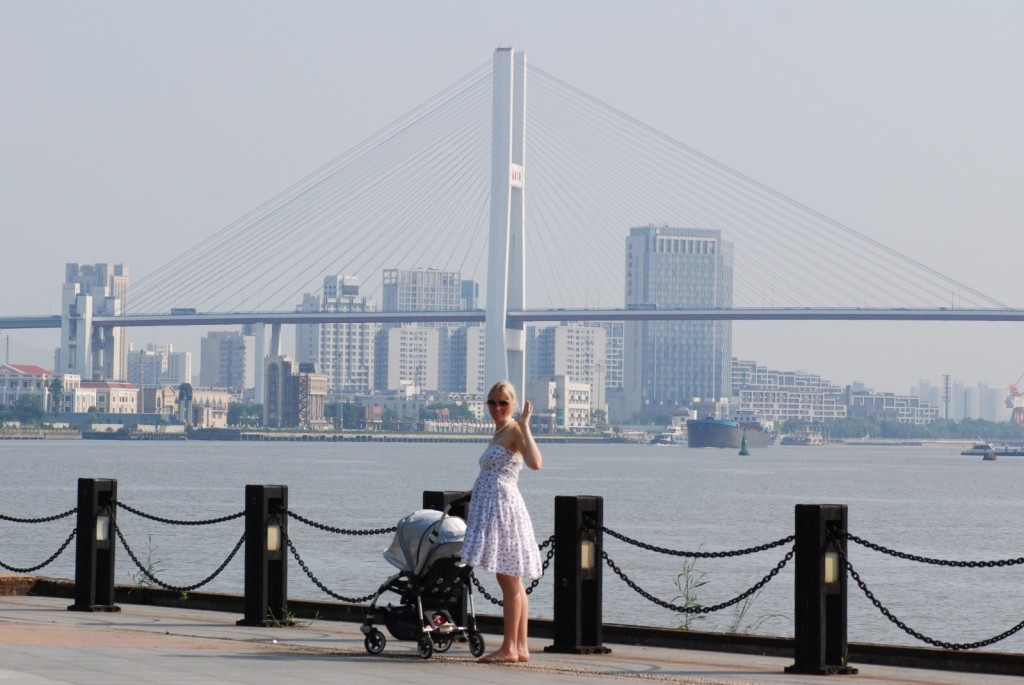2,400 years ago the philosopher Socrates claimed: “I am not an Athenian or a Greek, but a citizen of the world (kosmopolitês).” In 1937 Ernest Hemingway wrote in his novel To Have and Have Not: “In every port in the world, at least two Estonians can be found.” Under our Global Estonians feature we talk to diverse people in different cities, countries, continents. The Estonians whom we are talking to, are not necessarily famous or hugely successful yet — rather, it’s a place to exchange experiences and information — something which we can all hopefully relate to in some ways or another. Shanghai-based business professional Karin Nemec is our latest ‘Global Estonian’.
I
Karin, what made you leave Estonia and how did you end up in Shanghai?
My story of leaving Estonia is not very typical. In 2010, I was on a very positive career track at Swedbank (Swedish bank with subsidiaries in Estonia – Editor). Being the head of corporate products and member of the board of two subsidiaries — Swedbank Leasing and Swedbank Fleet Management — as well as a member of the highest credit committee, I was fully entrenched in the corporate world. I was very happy, but a turning point came at the beginning of 2010 when the managing director of corporate banking left the company and I was asked by the head of Swedbank Estonia to become the interim acting head of the division during the recruitment period. So I took the challenge and became the first female acting head of corporate banking in Swedbank’s history at the age of 33. At such a young age, I considered myself very fortunate to become a board member of one of the leading companies in Estonia; however, it also made me realise that I have very quickly hit the ceiling and, how small Estonia really is. At the same time, I wanted to keep improving myself and I had received the opportunity to attend the IESE business school, participating in the global executive MBA program. I felt that such education would be essential for improving the quality of my decisions. Furthermore, it would expose me to other global leadership talent, multicultural team work, insight into future trends to recognise the business opportunities and to understand the creation of successful global business models.
Surprisingly, the MBA studies gave me much more than I expected. I found the love of my life at my course. Our bond being built on similar values, lifestyle and views on life, and some rarely found personal character traits. Most of the time we select a partner who fits our lifestyle and share the life with them. Few experience the full physical and spiritual unity with their partner. Also, during the China module of the MBA, we received an interesting behind-the-scenes two-week exposure to China, and this also made me look at China and its opportunities in a positive manner.
After graduation, my husband received a promotion to run the Asian operations of his company based in Shanghai. Since China will play a much larger role in the world and is a rather closed society, we wanted to understand the culture and the society by being there first hand — to figure out whether was an opportunity or a threat.
I managed to find the way to work for Swedbank long-distance on their strategic projects since I wanted share my knowledge that I had gained during my studies at IESE. Today’s communication tools let one to work from wherever they are; distances are simply not important anymore.
Ten months ago we were fortunate enough to have a healthy baby girl join us in Shanghai and now I’m officially on maternity leave. We expect another baby in November. It was interesting to find out that our daughter was officially the first Estonian born in Shanghai. Sometimes I think about her life. Where are her roots? She was born in Shanghai, her mother is from Estonia and her father Canadian. She has three passports and three citizenships. I think she will be a perfect example of a global citizen who will not think about the challenges and issues of a single country rather than the challenges of the human kind on a global basis, and try to help with her talents in solving them. Her generation is the perfect example of world citizens and how they will select their place of living, their home, based on the best use of their talents and the harmony of the location with their personality.
The period we are spending in Shanghai is for me the time for family and motherhood. It is a great time to reflect what is important in life and where to next commit professionally. I try to enjoy this special time fullest because I understand this time will never come back.
How do you manage and what challenges have you had?
Life in Shanghai is full of learning and surprises. It is a very dynamic environment where you see huge changes every day. It is still a land of many opportunities. However, China is complex and it takes years to understand it. Censored media, language barriers and a different cultural background are the main reasons.
The discovery process of understanding the society and mindset is a great hobby. I read a lot on China, follow the local news regularly and talk to local people in order to really understand their motives, aspirations, rising opportunities etc. I know the basics of Mandarin; however, to make myself understandable to people I need to use a lot of body language and the help of Google Translate.
Shanghai is a very cosmopolitan city. The expat community is around 200,000 people and they come from all over the world. This all makes integration to the city vibe very easy. Expats are very open and helpful which makes integration to the community very easy. All expats are walking in the same shoes – they live temporarily in Shanghai, their close friends and family are far and they all come to Shanghai for experience and the adventure. People have active social lives with friends and try to help each other out. Since most of the expats’ contracts with their employers are short-term, eg three years, there are always many farewell parties in the city.
What were your first impressions of Shanghai and China?
European and Estonian news do not cover China very well and often is the news is very biased. Sometimes they are over-optimistic on China and next time they are very pessimistic. Clearly a part of that is due to the fact that China has a controlled media, the country is huge and its society complex, but not to the extent as the media in the west communicates it. Knowing that China still has elements of communism and the idea of freedom of speech is not present, I have built my own biased opinion on China. I knew what economic development meant, but I could not imagine the scale of the changes: 25 million people live in Shanghai — that is almost the total population of Canada! You see huge skyscrapers, like the Shanghai tower, built next to your apartment, and most of the time its peak is in the clouds; new modern metro lines continuously open in the city; bullet trains running at speeds of 300 km/h between the cities; huge consumption; and the ever-increasing middle class. I think those magnitude and scale changes are seen only once in a lifetime. China aims at bringing 200 million people out of poverty to middle class in the next decade (this is the size of 2/3 of the US populations). Also the society is opening up, getting more modern and is transforming constantly. Those huge changes bring about many business opportunities. It is a historical moment.
On the other hand looking at the history of China and the dynasties, I expected richer cultural heritage to be seen. Countless art and culture has been lost during the Culture Revolution.
China being cheap is becoming a myth very quickly. Shanghai is ranked 16th among the most expensive cities in the world. If you would like to maintain a western lifestyle you have to pay two to three times more for pretty much everything. China is turning from a low-cost production country to an attractive internal market to produce goods and services for its rising middle class.
What do you like most about life in Shanghai?
The dynamic vibe, visible positive changes, constant discovering and learning about China and the Chinese, the open and friendly expat community, safe city, a variety of Asian food, recognising growing business opportunities. Every day is an adventure full of surprises.
What is the most difficult about living there and how do you cope?
The most difficult part is the distance from Europe and America which means one’s family and closest friends are far away. This is constantly made easier with tools like Skype and social networks; however, you have to take into the consideration the time differences and this can be up to thirteen hours. At the same time, the distance creates an open and friendly expat community which makes integration to the new environment very easy. Living in China I feel that the globe has got much smaller and distances do not matter. We only have to adapt to a global lifestyle.
Our biggest issue in Shanghai is air pollution and water quality. Before going to walk outside with our daughter I need to check the air quality because some days the pollution is hazardous to elderly people and infants and it’s recommended to stay indoors. Although it does not happen often, it is enough to make you think about long-term health effects of the environment. We can’t drink water from the tap and have to filter and boil it before using.
Coming from Tallinn, I was not used to the population and intensity of the city. It took me about six months to adjust. My understanding of personal space decreased and my tolerance to noise increased. Now I could say I have adapted and the hustle and bustle of such a megacity does not bother me anymore.
What motivates you in life generally and do you have any advice for others?
When I was younger, the drive for excellence, passion, learning and expanding my own limits were the main drivers. As I matured I have realised that love and things done by heart matter the most and live long. There are two quotes that inspire me a lot: “Only one life, it will soon be past; only what’s done with love will last”; and: “Teacher dies, teaching stays”.
By the time I became more meaning-oriented I looked for the best ways to use my talents. I think a lot about the life quality of the future generations and sustainability issues and find the ways how I could contribute the most. Only meeting shareholder targets is not enough in business. Life should be meaningful and inspiring to live at its highest levels.
What about Estonians in Shanghai? Do you still have a connection with Estonia?
The Estonian community is very small in Shanghai, about 20-30 people. It is interesting that there are almost no active Estonian companies in China. There is so much potential and opportunity, yet Estonians seem to shy from China. I believe this is from the lack of knowledge about China, what one does not know, does not relate. Combine that with some of the negative press about China (pollution, one party system etc.), it seems that Estonians are afraid to take the plunge.
I have also recognised that Estonians like to keep contact with other Estonians while living abroad due to the fact that we are a small nation and we feel a need to help each other. That is also unique, I would say. I always look forward to going back to Estonia, normally I do once or twice a year.
What do you miss most about Estonia?
Close family and friends, clean air, silence, beautiful seaside and long white nights in the summer, walks in Kadrioru park, visiting KUMU and Estonian-language theatre plays, the tiny and connected society, easy access to different expertise… Those are the things that come to mind at first.
What are your plans for the future? Do you see it in Shanghai as well?
We will most likely stay in Shanghai for a total of three to four years and then we’re open to change our residence again. By that time our two kids will be old enough to attend the daycare and I’m planning to return to professional life. The question is where we could use the most out of our talents that would fill our souls and stomachs and at the same time be intellectually interesting. Also the environment needs to fit to our lifestyle. Everything is possible at the moment and we have not made any concrete plans.
I have also recognised that in life you need to have anchors and directions but need to be flexible. Most important is to focus on the present and find the ways how to create things with passion and care.
I
You can follow Karin on Twitter @KarinNemec where she also posts interesting articles or remarks on China. Since her background is business, her main focus in her tweets is mostly business.
Photos: Karin Nemec






It seems to me that quality of life is more important that life of variety and cultural exchange. As with all parents you will soon be making decisions for the childrens future.
I am Chinese once studied two years in Tallinn. Six years ago I left Tallinn, back to China. But often read the articles on Estonia World, to keep eyes on Tallinn. After seeing your story , very touching. China and Estonia, the big differences can be seen in huge number of aspects. We are lucky to experence it.